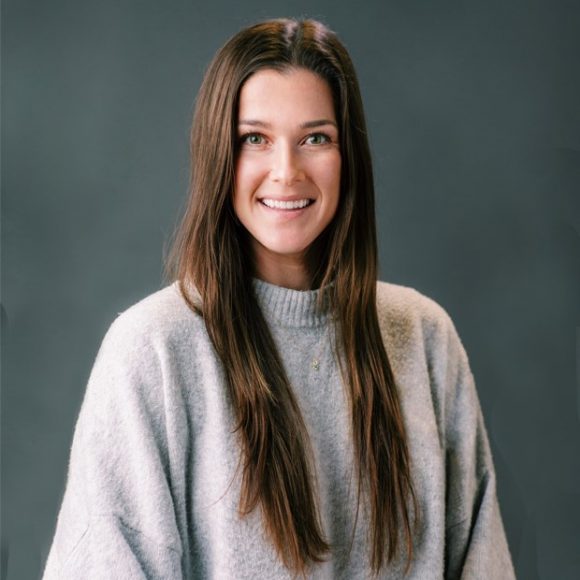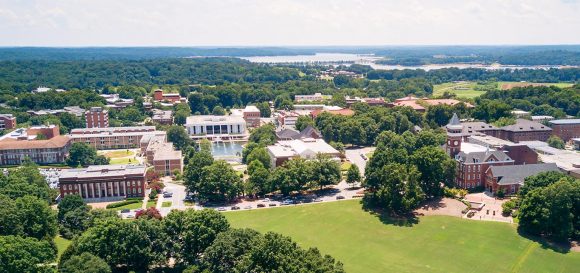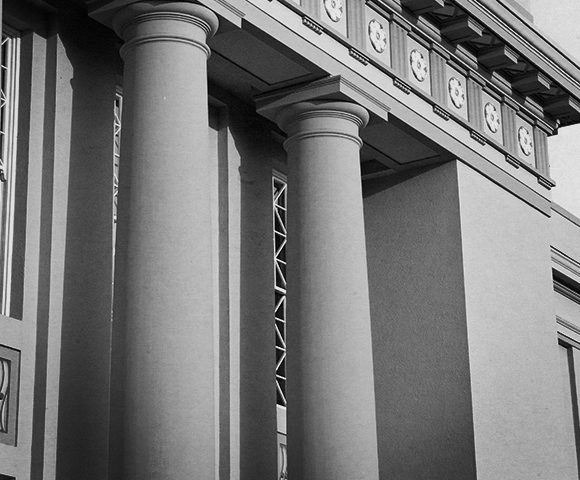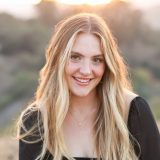Meet Rikishi Rey – PhD Candidate 2022 How she secured her dream job at a R1 institute
March 4, 2022
 What year did you start at Chapman?
What year did you start at Chapman?
2019
What made you choose the School of Communication?
I chose the School of communication here at Chapman because I had a three hour meeting with Dr Keith Weber, the director for the PhD program, because as cliche as it sounds he made me feel seen. I felt very welcomed and he took the time to get to know me and invest in me. I realized I wanted a program that would invest in me and who I was. I was relatively young in the field of academia and I knew I wanted someone who would take an interest in what I was interested in and that’s what Dr. Weber did. I met with him in the summer of 2018 and I immediately felt at ease. I still didn’t necessarily know and I still wanted to look at my other option which was the University of Tennessee. They have an amazing program also but I went over there to meet with their director for their program and I had a twenty minute conversation with them. It was fine but with Dr Weber, our three hour conversation really let me know that Chapman would invest in me. Later that year, I was at a conference and I set a meeting with Keith and he told me that Chapman would like to formally accept me as their first PhD acceptance for the program. For me, Chapman just made sense and it was going to allow me to do what I wanted to do. The vision I had for myself, Chapman was going to facilitate that success for me.
What are you getting your PhD in?
Health and sport communication
What do you plan on doing with a PhD?
I am going to be in a tenure track position researching health and sport communication. So I will be teaching sports communication courses and overall the goal of my phd was to get a job and fortunately it worked out. I like the structure of school and I love teaching and research so staying in academia was the perfect route for me.
Please tell us a little bit about your dissertation
The field of sport communication does not have any homegrown theories within the discipline itself so my dissertation hopefully will be creating the first theoretical model for sports communication to holistically examine, understand, and predict athletic success.
How did you develop this proposal?
Development came from multiple conversations with Dr. Weber and we looked at all the work done in sports communication already and within each I really felt there was something missing from the puzzle. Specifically, I’m looking at how the individual, family communication, and outside support impacts the athlete. But the more I kept reading, I felt like there was more to it. Within my own research, I was examining how athletes manage emotion within sport, specifically emotions that stem from the sport itself and come from outside of the sport that they bring into their performance. Within interviewing athletes, they kept saying they would go to their parents for this or to the coach for something else, their teammates for this and it was interesting to see how all these different facets create the athlete and help them go through these emotional experiences. I knew there had to be some sort of explanation or theory for all of this. I played soccer for Cal State Fullerton so I have a sports background. Having played and now I coach, I have seen this within my own life. I had coaches and family that impacted me greatly in the performance of my sport. It made sense anecdotally, makes sense within the literature and within my side research so I went to Dr. Weber and told him I had an idea. I shaped and molded it and worked on it so late last semester, I finally thought I had a model. Within the dissertation, I created this model and now the next step is to test it. Getting athletes to take my survey to see if what I’m proposing works. In theory it works so I can’t wait to test it out.
How does this relate to your broader program of research?
Examining how athletes manage emotions within their sport.
Do you foresee any hold-up in completing the Diss or do you (and your advisor) believe that you will be Dissertated by the beginning of Summer?
No, Dr. Weber and I are on track. For my Masters I wrote a thesis so I was comfortable writing this type of literature. I luckily also had some great networks that are willing to work with me. I do mixed methods, qualitative and quantitative. So running the data shouldn’t be an issue. There shouldn’t be any hold up but we will see what life throws at us.

Clemson University in South Carolina
I understand that you have already secured a full-time faculty position for next year. Can you tell us a little bit about that?
I secured and officially accepted a job at Clemson University as a tenure track associate professor of Sport Communication. I will be starting in August of 2022. I will be doing two classes each semester and research as well. They have a wonderful research team and program there. I was very fortunate to receive funding to help assist with the costs of research like paying participants, travel, or software that I may need. So, I did get a budget to do actual research which is nice. Clemson is a R1 school which is the highest level you can get in academia. It is very prestigious school that produces and has one of the greatest sport scholars in field today, Dr. Gregory Kramer, and I will be working with him and I am very excited to work with him. We have already had extensive conversations about how we will continue building our side of sports communication. Clemson of course also has an amazing sports program, so being able to work with the football team and other athletes is perfect. I was very fortunate for them to have a sports line open up and it worked out well.
The interview process can be a stressful one, how was it for you?
Honestly, it was and it wasn’t stressful. I don’t stress about many things and I felt overly prepared for the interview. Dr. Weber and I, at great lengths, had many meetings where we had mock interviews, asked me questions that they would ask here, and really prepared me. I really leaned into him to prepare me for it and I asked a lot of questions as well. So when I went into the interview, it was a two part process. I applied and passed the first round of just simply looking over all the documents I sent over. Then they called me and set up an interview via zoom. It was 7:30 in the morning because of the time change. I think the most stressful part was that I reserved a room to do this interview and the room was locked and the security guards key wasn’t working either. When I finally got into the room and went to start my interview my zoom decided it needed to update. That honestly was the most stressful part but the interview itself went really well. When they interviewed me I was at peace with how prepared I was and if there was something I didn’t know it wasn’t because of a lack of preparation. I was at peace with being able to say “I don’t know but I will come back to you with that.” Thankfully, I didn’t have to say that because Dr. Weber prepared me so well so I went into it with quite a bit of confidence. I went into it thinking that if it was meant for me it will work out and if it’s not that’s okay too.
They called me the next day and said I passed the first zoom interview and they would like to fly me out to Clemson for an in person interview. The next week I had a 6am flight out but had to be interview ready because they would be picking me up from the airport and that basically starts the interview. On the flight there, I prepared a little bit, looked over my notes and everything that I had. Then I landed at 3:30 their time and got picked up and the interview started right away. Being an athlete, I told myself it’s game time and time to perform. Again, I knew if I didn’t get the job it wasn’t going to be out of a lack of preparation, maybe I just wasn’t the right fit. So it was a 40 minute drive from the airport and you have twenty minutes to get yourself together then you go out to dinner where essentially they are just grilling you. The worst part was the time change because I had to be up and ready for my first meeting at 7am, which is 4am for us. So really the time change was the hardest part but you can do anything for a day. It was hard not having a day to transition into their time and get adjusted. I had interviews and meetings from 7am-9pm straight through. I would have an interview with one person, then they would take me to someone else, get asked more questions and it’s just like that all day. Then I had to do a research talk where I explained who I am as a researcher for an hour and a half. I had an interview with the dean, then the chair, then I had to teach a whole class. I took over a professor’s class and had to just go out there and show who I am as a professor. We then had lunch and more meetings then a tour of the campus. As crazy as it sounds, more interviews after that and then dinner that night concluded the day.
It was a very long process but it was fun and I went into it being the best professional side of me but also just showing who I am as a person. I want to be somewhere where I can be myself so I had a great time and if they wanted me then I knew it would be a good fit and if they didn’t then it wasn’t for me. I got a call when I landed on my layover and Dr. Kramer called and gave me the job. They offered me the job and didn’t want to wait through the weekend to call and tell me the news. I was in the airport by myself and was freaking out and so excited. I immediately called Dr. Weber because he invested a lot of time into me and prepared me for this interview and all throughout my dissertation. I then called my husband and was so excited and I am so lucky to have him by my side the whole process as well.
How many schools did you interview at prior to being offered this job?
None. It was one and done. Clemson is very strategic when their job call comes out. They were the first job call out and I am grateful to be able to say they wanted to be able to get the best of the best before you have the opportunity to go apply and interview anywhere else. So when they offered the job, I couldn’t turn it down because literally nothing else was open. No other universities even had a deadline yet. But honestly, I didn’t want to go anywhere else, it felt right and I knew the program. I was open to moving and I knew their faculty very well. It was always if Clemson will have me then it will always be yes but if not then awesome because I still have so much time. I applied to one school, I got in and I knew it was it.
During the interview process, did you get a sense of anything in your preparation here at Chapman that made you stand-out from other applicants?
Throughout the interview process a few things specifically stood out. One was the courses I had an opportunity to take. Specifically I had experience with grant writing. I had applied to a grant, I know how to apply to them, read them and do all that. My teaching experience at Chapman led me to teach 6 different courses and I created two of them and one of them from scratch. My ability to teach different courses, create course content, build classes was amazing for them to see. They were really impressed that I did this while I was doing my PhD but I thought everyone who did this. They told me no, most people haven’t even taught a class coming out and I was up against some already graduated faculty members who didn’t have experience with grant writing or haven’t taught as many classes as I had. Going up against names in the field who have already solidified their position in the field and to beat them out not even graduated with my PhD yet says a lot to the program here that Dr. Weber has built. He has created something that created PhD students that beat out full time established people. In the interview process, everything I got the opportunity to experience at Chapman made me stand out from any other applicant. I even had a faculty member from Clemson email me afterwards to say how impressed they were with what I had been able to do during this PhD program. Again, this is a testament to what Dr. Weber created here and how his vision was to prepare PhD students for the job market and not just finishing your PhD and saying good luck. This program has created something that other students don’t experience and helped me stand out from other applicants.
Any advice for any students looking into the program?
You have to know why you are pursuing this degree. There will be hard days but at the end of it I knew I want a position at a R1 institute and get hired. It motivated me to do research and more research and push myself to get where I wanted to be. Knowing what that goal is will help you. If your goal is to do a PhD and work at a teaching institute, that’s amazing, you just need to know what you want to end up doing. It will all be worth it in the end and it goes by faster than you will ever imagine. It is rewarding, worth it, you will feel accomplished and it is fun. I have had so much fun doing it, It will be whatever you create this experience to be. If you want your PhD experience to be miserable then you can but if you want it to be fun it can be something that’s really fun. My biggest advice is to go into it and make it fun. That doesn’t mean it won’t be hard work, it’s hard but you get to study what you want to study. I study sports, I played sports my whole life and now I get to incorporate that through research and now I get paid to do it. Never let the time of how long it’s gonna take to do something stop you because the time will pass anyway.

